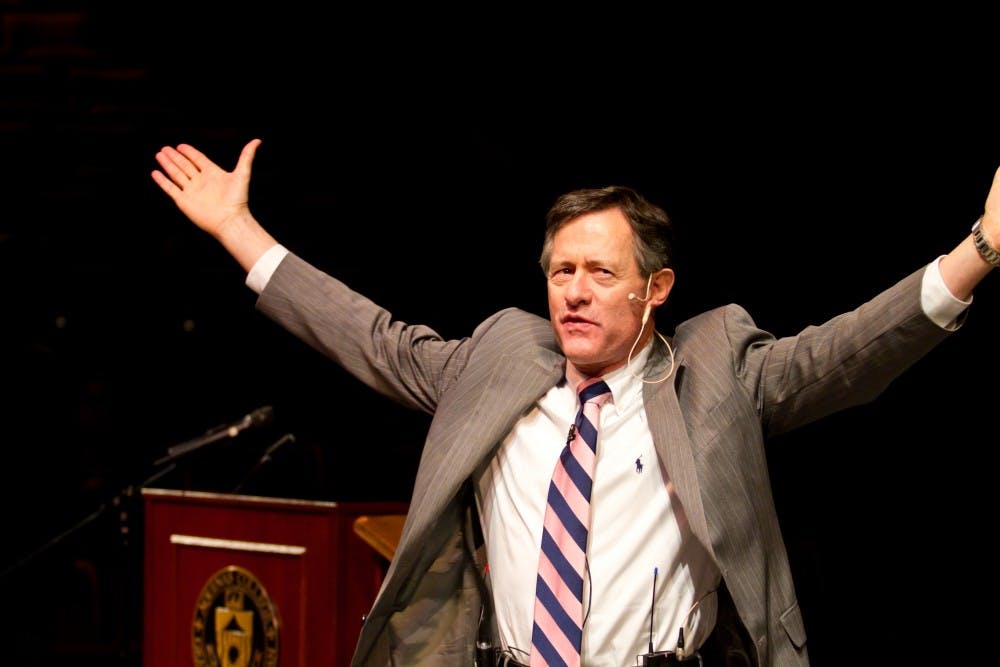The SOC Spring Film Series hosted by professor Chris Palmer is back on campus for its 13th year. The series kicked off on Feb. 13 with “An Inconvenient Sequel: Truth to Power.” It will end April 13 with a filmmakers’ discussion. The film series will focus on environmental issues in the natural world, featuring a variety of films made by students and professionals.
Chris Palmer is a professor of film and media arts as well as a speaker, author and environmental film producer. He founded the Center for Environmental Filmmaking and started the SOC Spring Film Series shortly after he came to the University in 2004.
“I wanted everybody to have a chance to meet people like the head of National Geographic or a top producer for Discovery,” Palmer said. “We have the series as a learning experience.”
Palmer is partnering with Washington D.C.’s Environmental Film Festival. The showings from March 20 to March 23 will be a part of the broader D.C. festival. Each event will be held in the Malsi Doyle and Michael Forman Theater on the second floor of McKinley. All showings are free, open to the public and run on a first come, first seated basis except for the D.C. festival showings, which require tickets due to their popularity.
Palmer hopes themes from the series will resonate with students and leave them more aware and invested in the natural world. Palmer’s overall mission is to inspire students to take action and encourage them to create inspiring films of their own.
Not only is the event a learning opportunity, it is also a networking opportunity. Attendees from non-government organizations and federal agencies will attend. As the host, Palmer will make sure everyone gets to meet each other and discuss their different interests and lifestyles. He will also hold question and answer sessions after each film.
Palmer believes that the movies presented at the series could incite action in the community. Although Palmer often receives criticism on the impact of environmental documentaries due to worsening environmental conditions, he questions if the world might be worse without these films.
The film “has to be able to stir up people’s imagination and get them thinking and acting,” Palmer said. “We make films to change the world.”





